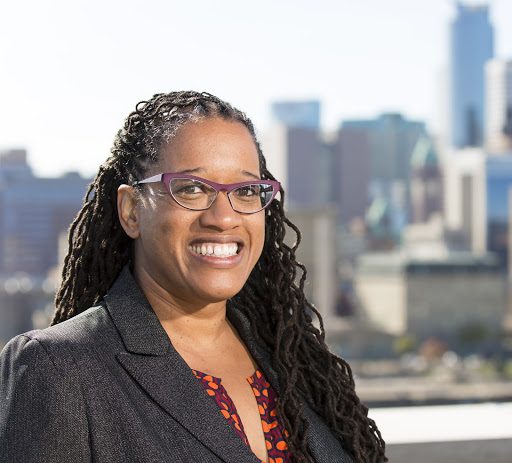by Ellie Garran, Academic Civic Engagement & Scholarship Coordinator

Dr. Tania Mitchell is an associate professor of Higher Education at the University of Minnesota and an internationally recognized scholar in service learning and community engagement. The CCCE is proud to host her as keynote speaker of our June 16–17 workshop Shaping Our Shared Future: Advancing Equity through Community and Civic Engagement. We spoke to her about her current work and thinking, and her influential work around critical service learning.
On her proximity to George Floyd Square at the intersection of 38th St and Chicago Ave:
“I have been thinking a lot about the protest that is and has been at that intersection for the last months, and the efforts by the city to reopen the intersection despite the importance now of that place for a host of things—as a community gathering site, as a space of protest, as a space of grieving and mourning. I’ve been thinking a lot about how we honor movements and spaces and individuals and how higher education community engagement in particular can be engaged in a process, particularly in something like George Floyd Square, which is an active site of protest, not a nonprofit or an organization, but where much of the work looks like some of the things that we might do for community engagement, i.e., cleaning up the street, painting projects, mutual aid distribution and collection, holding space and holding community with others in terms of conversations and education. So is there a possibility or an opportunity in higher education community engagement to be in protest, if that is what is needed or requested from the community, in spaces that are not focused on a clear leadership structure in terms of an agency, organization or nonprofit, and in a space that is in contention with city, county, state leadership? Even as it might also provide powerful learning opportunities and may be a valuable space for remaking, reimagining and rebuilding community.”
Mitchell is widely known for her 2008 paper Traditional vs. Critical Service-Learning: Engaging the Literature to Differentiate Two Models, where she describes critical service learning as being distinguished by a social change orientation, working to redistribute power, and developing authentic relationships. Here she details how her thinking has developed since that paper’s publication.
“The ways that I think about those three elements of a critical service learning pedagogy have grown or expanded more fully, I hope both to change and respond to our current circumstances, but also to respond more fully to who we are, where we are and how we understand our responsibilities towards bringing about a more just future. And so when I think about the article, my thinking about those ideas of social justice, of social change, of working to redistribute power, of developing authentic relationships, still had community at the periphery in ways that I feel much more able to critique now and challenge myself on than I did when that piece was written.
“I still see higher education institutions as holding too tightly to what I’ve come to call plug and play experiences—those community engagement opportunities that are so routinized in the space of community-based nonprofits that you literally can finish a semester or quarter, or trimester in the case of Carleton, have students step out of those roles to move on to whatever they’re doing now, and the students who register for the class next semester plug in right where they were. Those kinds of routinized plug and play experiences do much for the community organization to limit the legacy of disruption, but may not do that much for the community in terms of realizing some kind of meaningful change. So I’ve been trying to be more clear when we’re thinking about attention to social change that we need to be thinking about all of the different kinds of work that is required to bring about meaningful change. Some of that work may not be activism, policy oriented advocacy work that I advocate for in the critical service learning article; it can include much more “merely charitable” kinds of work in terms of providing child care or offering meal service or something along those lines, when it is done in a space that advances the capacity of those who are most impacted by the issues to be able to do work on their own.
“The more just futures that we’re working towards require effort in a whole lot of different places. And it’s not that we all aren’t capable of doing all of the work, but we have to figure out where we are most needed in this moment and why. Even if we are not engaged in the kinds of advocacy or policy oriented, directed work that might get the credit for changing structures, the work on the part of higher education and community engagement is to ensure that we are stepping back so that community leads.”
If you’re interested in hearing more from Dr. Mitchell and thinking together about how we advance a critical practice of civically-engaged teaching and scholarship, please sign up to receive updates about the Shaping our Shared Future event by submitting an interest form for faculty and staff or community partners.